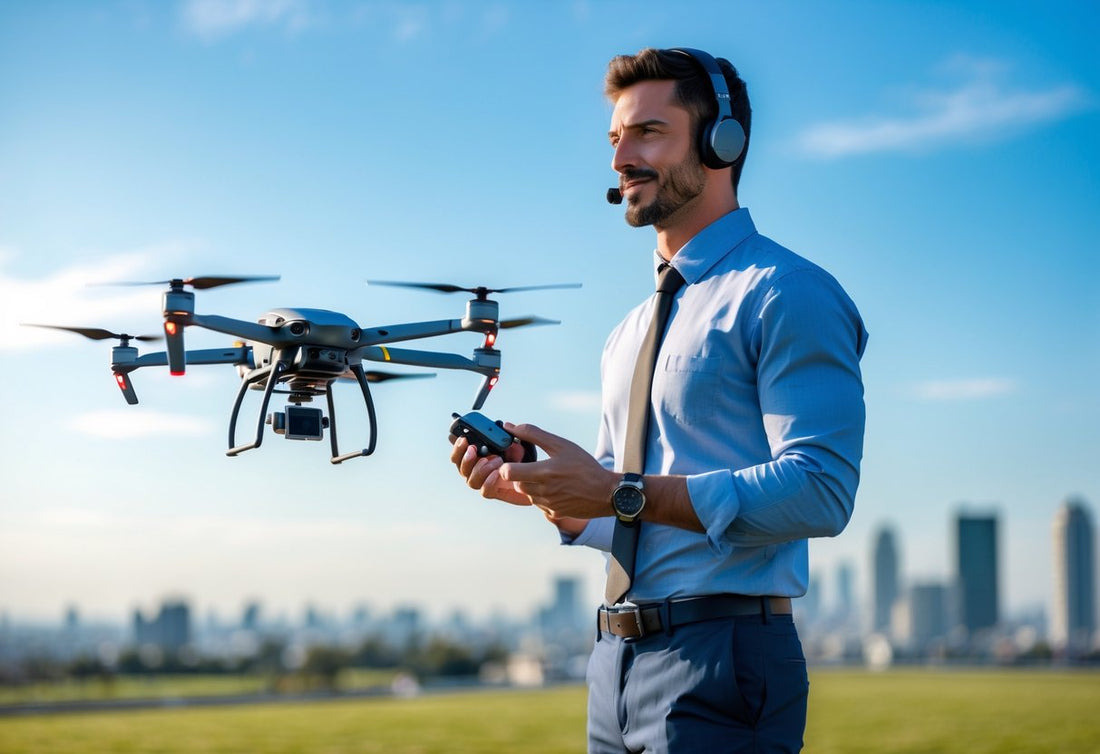
Drone Pilot Wanted: The NZ Skills Gap You Could Fill
Share
New Zealand's drone industry is experiencing unprecedented growth, creating a surge in demand for qualified drone pilot professionals. From NZ’s rolling hills of Canterbury to the rugged coastlines of Auckland, businesses across the country are desperately seeking skilled operators to fill critical positions in this rapidly expanding sector.
The Booming Drone Economy
The commercial drone market in New Zealand has exploded over the past five years, with applications spanning agriculture, construction, film production, surveying, and emergency services. Agriculture alone accounts for a significant portion of drone operations, with farmers utilising unmanned aircraft for crop monitoring, livestock management, and precision spraying across the country's vast farming landscapes.
Real estate agencies are increasingly relying on aerial photography to showcase properties, while construction companies use drones for site surveys and progress monitoring. The film industry, always a cornerstone of New Zealand's economy, has embraced drone technology for capturing stunning aerial sequences that would have been impossible or prohibitively expensive using traditional methods.
Skills Shortage Reality
Despite this growing demand, New Zealand faces a critical shortage of qualified drone pilots. Industry reports suggest that the gap between available positions and qualified candidates continues to widen, creating exceptional opportunities for those willing to enter the field. Many companies are struggling to find drone pilots in NZ who possess both the technical expertise and commercial acumen required for modern operations.
The shortage isn't simply about flying skills. Today's drone pilots need to understand complex regulations, possess strong analytical abilities, and often require specialised knowledge in their chosen industry sector. Whether it's understanding soil conditions for agricultural applications or comprehending structural engineering principles for construction surveys, the modern drone pilot is part technician, part analyst, and part industry specialist.
Getting Started in Drone Operations
Becoming a certified drone pilot in New Zealand requires obtaining a Remote Pilot Licence (RePL) from the Civil Aviation Authority. The certification process involves both theoretical knowledge and practical flight training, covering topics such as aviation law, meteorology, human factors, and aircraft systems.
The investment in training typically pays dividends quickly. Entry-level drone pilot positions in NZ often start at competitive salaries, with experienced operators commanding premium rates, particularly in specialised fields like industrial inspections or emergency response operations. Many pilots choose to work as independent contractors, offering flexibility and potentially higher earnings.
Diverse Career Pathways
The beauty of drone piloting lies in its versatility. Agricultural drone pilots might spend their days monitoring vineyard health in Marlborough, while maritime specialists conduct vessel inspections in Wellington Harbour. Search and rescue operations rely on drone pilots to locate missing persons in challenging terrain, and environmental researchers use aerial data collection to monitor wildlife populations and habitat changes.
Construction and infrastructure companies offer stable employment opportunities, with drone pilots conducting regular site surveys, monitoring project progress, and ensuring compliance with safety regulations. The renewable energy sector also presents growing opportunities, with wind farm inspections and solar panel assessments becoming routine drone applications.
Future Prospects
As technology continues advancing, the role of drone pilot professionals will evolve beyond simple flight operations. Integration with artificial intelligence, automated flight systems, and advanced sensor technology means today's pilots are positioning themselves at the forefront of a technological revolution.
The New Zealand government's commitment to innovation and technology adoption suggests continued growth in drone applications across various sectors. Early career entrants who develop expertise now will likely find themselves in leadership positions as the industry matures.
New Zealand's drone pilot skills gap represents a genuine opportunity for career changers, recent graduates, and technology enthusiasts. With proper training, certification, and dedication, becoming a drone pilot in New Zealand offers the chance to join an exciting, growing industry while filling a critical national need.
Take the next step. Complete our online quiz to find out which drone certification course is right for you.



